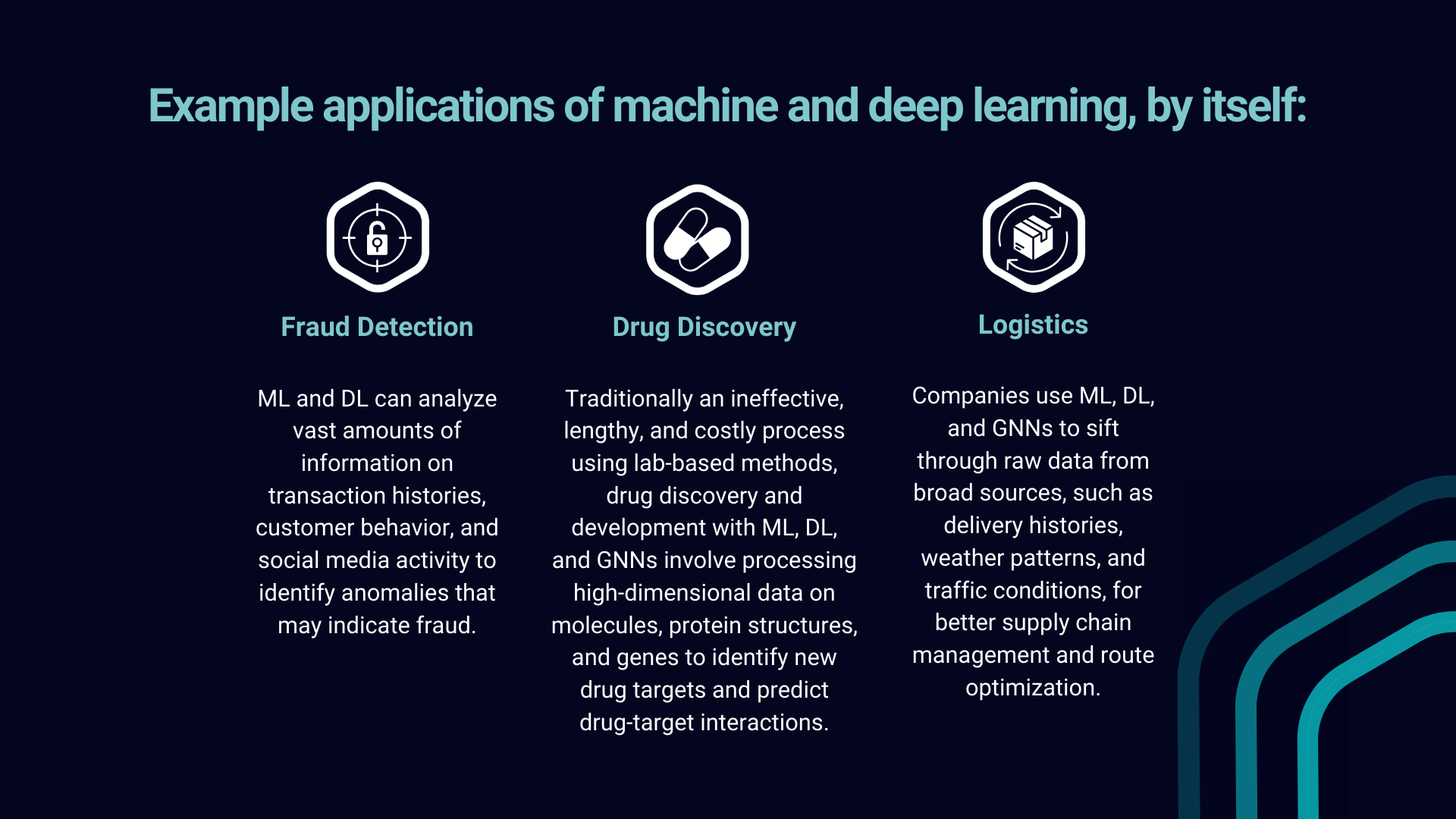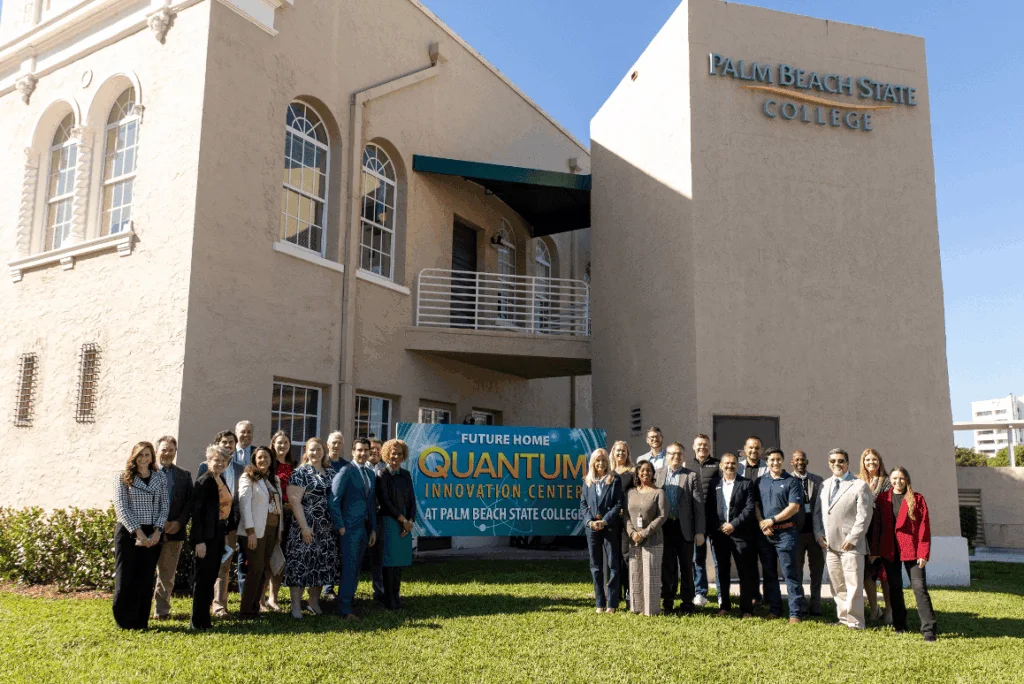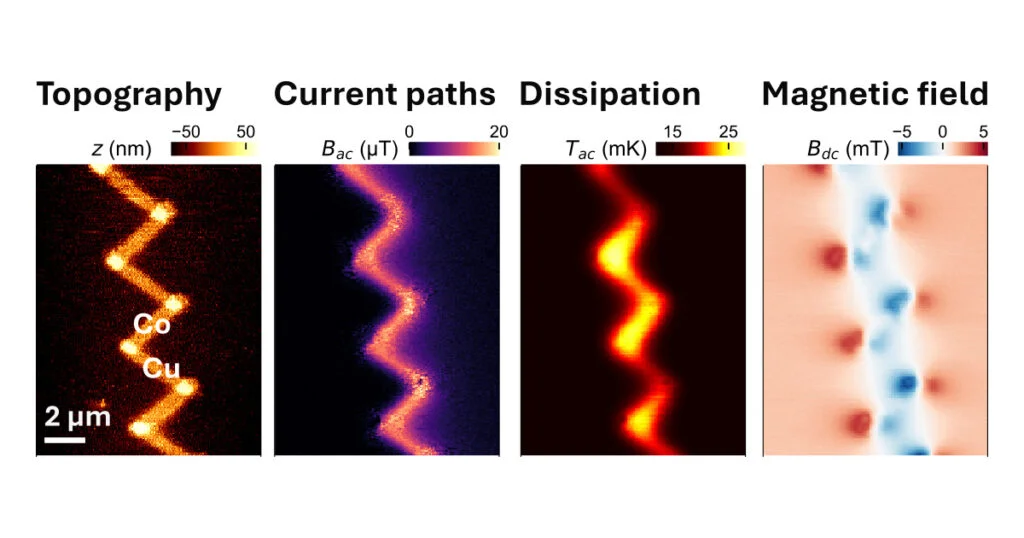Quantum technologies have had a meteoric rise and become a key area of prioritization for governments, academics, and businesses. Government funding commitments total almost $40 billion, while private investments since 2021 total nearly $8 billion. The US agency, National Institute of Standards and Technology, released this year three new post-quantum security standards, which governments classify as ‘critical resources’ for the economy and national defense. Meanwhile, users of quantum technologies experiment with them, from industry applications in drug development and materials science to energy grid optimization and logistics efficiency.
Yet, besides a few areas, such as quantum sensing, practical and impactful quantum technologies haven’t matured for widespread use. However, when combined with classical machine learning, practical use cases emerge.
This article delves into the impact and potential of artificial intelligence and quantum technologies with QAI Ventures, a financial partner and ecosystem builder in quantum technologies and AI, as a potential collaborator for startups to deliver investment, resources, global networks, and tailored accelerator and incubator programs.

The Impact of Machine and Deep Learning in Industry Applications
Artificial intelligence is an umbrella term for numerous algorithms that can be visualized as an onion. The first layer is machine learning (ML), which uses historical and current data to predict outcomes. The next layer is deep learning (DL), which has the same capabilities as ML but with self-learning and adaptive abilities. One layer down is Graph Neural Networks (GNNs) with ML and DL functionalities but from a graph perspective using network theory, global contexts, connectivities, nodes, edges, and vertices.

Generative AI, such as large language models (LLMs), is rooted in Graph Neural Networks, using all the previous layers of the AI onion.
AI is fundamentally designed and programmed with classical computing capabilities. When converged with quantum technologies such as large data sets fed by quantum sensing, deep learning algorithms can discover relationships and relevant features and even predict outcomes from simulated scenarios.

Current Experimentation and Potential of AI in Quantum Simulation and Optimization
Quantum simulation can model the complex dynamics of matter and energy at the microscopic level. Quantum optimization uses unique quantum algorithms to solve optimization problems across disciplines. In both instances, all the layers of the AI onion can significantly improve these quantum computing applications by supplementing where quantum processing falls short.
ML, DL, and GNNs support quantum simulation and optimization by:
- Recognizing patterns in data that aren’t uncovered through traditional processing;
- Synthesizing lower-level representations of complex, high-dimensional data;
- Predicting how novel quantum-level systems (molecules, atoms, photons, etc.) may behave and interact.
Quantum and ML for Route Optimization
For delivery companies like FedEx and DHL, finding the best routes to fit a given set of constraints presents a compelling case for employing ML-aided quantum computing. The Quantum Approximate Optimization Algorithm (QAOA) can be applied to complex vehicle routing problems to identify the most optimal path, working in concert with the predictive powers of ML models to account for variables in traffic, weather, and other disruptions.
Quantum and ML in Pharmacology
One of the most promising applications for quantum computing and AI is in drug development. Companies like Kvantify, a quantum and high-performance computing (HPC) firm, apply tools like the Variational Quantum Eigensolver (VQE) algorithm to aid in molecular modeling. VQE calculates the ground state energy of molecules, a necessity for accurately depicting drug interactions, while machine learning algorithms play a pivotal role in optimizing performance.
Pairing quantum algorithms with all the layers of the AI onion allows their strengths to complement each other, delivering a hybrid model of problem-solving and discovery that will drive innovation for years to come.
The Potential of AI in Quantum Error Correction (QEC)
One of the primary challenges to realizing quantum computing as an impactful technology is dealing with environmental noise and decoherence. These factors can cause a quantum computer’s qubits (the processing units of a quantum computer) to lose their quantum properties, resulting in errors.
Error correction, used by classical computers, employs redundancy encoding to alert for changes in data, and complex probability models clean up the data. But quantum states cannot be copied as in classical, bit-based computers. Instead, scientists use error correction methods such as encoding quantum information from a single qubit using a larger system of qubits.

ML and DL can help with quantum error correction (QEC). AI’s pattern recognition can be trained to identify errors and anomalies in qubit behavior, predict noise patterns in quantum systems, and optimize quantum error correction codes. If executed effectively, this lowers the need for probabilistic models to turn the noisy quantum data into applicable quantum processing.
Quantum systems are fragile by nature and prone to disruption and decoherence. More work is needed to take QEC and quantum computing past the current “noisy intermediate-scale quantum” (NISQ) era, and AI could play a crucial role in this process.
Challenges in Integrating AI with Quantum Processing
Unlike classical computing’s bits, qubits and quantum processors leverage the principles of quantum mechanics to potentially achieve a new kind of computation.
Superposition and entanglement could allow quantum computers to perform coordinated operations on multiple qubits and process vast amounts of data quicker than classical computing.
If realized, quantum processors may solve certain computational problems in minutes that would take a lifetime or more for the most powerful classical computers.
Yet the uniqueness of quantum computing presents challenges when it comes to integrating quantum and the linear processing of the AI onion:
- Data Representation: Transferring data from classical to quantum systems and vice versa is resource-intensive (requiring scaling the number of qubits) and complex (requiring precisely prepared quantum gates to manipulate qubits).
- Processing Speed: Compared to classical processors, gate execution in today’s quantum processors is relatively slow, and hybrid quantum-classical algorithms have to contend with the add-on of error correction techniques, which can further slow down processing.
- Hardware: Some of the most popular quantum processors run at super-cold temperatures, and high-quality qubits with long coherence times are still challenging to create. The specialized interfaces and control mechanisms needed to facilitate hybrid quantum-classical systems are still in development.
QAI Ventures as a Patient Investor and Ecosystem Builder
Despite the challenges in technology and research, AI’s potential in quantum technologies is vast. The two are mutually supportive. Quantum computing can speed up some of the computations central to ML and DL, and quantum-enhanced versions of classical machine learning could lead to breakthroughs in AI with far-reaching positive impacts.
Quantum technologies are still in their infancy; companies and research groups need investment and support to grow and realize their potential. QAI Ventures is a VC fund combined with a startup accelerator focused on quantum technologies, advanced AI, and advanced computing.
QAI Ventures empowers innovative builders. A patient financial supporter and champion of the values of collaboration and ecosystem-building to bring the transformative promise of quantum technologies and AI, separately and combined.
The Benefits of Collaborating with QAI Ventures:
- Resource-sharing for startups.
- Fosters innovation by bringing together diverse perspectives and expertise.
- Helps startups integrate their technologies into various industries and real-world applications.
Ecosystem Building Advantages with QAI Ventures:
- A robust ecosystem that connects startups with research and academia to help develop technology solutions and to corporates to help test their products on real-life use cases
- Access to a global network of mentors and experts that help startups grow their businesses and expand to new markets.
Case Study: Success Story Supported by QAI Ventures
In April 2024, QAI Ventures announced a strategic investment in Swiss tech cluster Phoenix Technologies to further innovation and entrepreneurship in quantum technologies and AI.
An organization focused on tech sovereignty in Switzerland, Phoenix Technologies operates the AI Innovation Center in Basel, Switzerland, through its partnerships with QAI Ventures, IBM, Red Hat, and others.
Together with QAI Ventures, Phoenix Technologies is developing the kvant AI Platform, an AI-driven platform that also provides end-to-end support and services to the QAI Ventures ecosystem.
kvant AI is built on IBM Research’s Vela AI Supercomputer and offers users a unique sovereign AI solution. Organizations can build, tune, and deploy advanced AI models on a sovereign cloud in Switzerland while leveraging availability, scalability, and security – offering a complete end-to-end AI solution. This allows organizations to even leverage their most critical data within AI applications.
QAI Ventures’ partnership with Phoenix Technologies exemplifies how milestones in quantum computing and AI can be reached by supporting innovative research and business strategy.
“By merging AI cloud capabilities with the potential of quantum technology, the [partnership with Phoenix Technologies] not only fuels innovative advancements but also supports startups by providing cutting-edge tools essential for redefining industries,” Alexandra Beckstein, Co-Founder and CEO of QAI Ventures, in a press release.
Conclusion
The convergence of quantum technologies and the layers of AI is poised to push the boundaries of innovation and the capabilities of the two technology umbrellas.
AI and quantum technologies research and applications have only scratched the surface.
Applications using quantum sensing to precisely identify and characterize raw data for deep learning algorithms to analyze and predict are beginning to mature. Use cases where quantum simulation and optimization are combined with AI for molecular modeling in drug discovery and materials science, logistics, finance, manufacturing, cryptography, and climate modeling are developing.
But the road to practical applications is long.
It begins with dynamic research labs, a collaborative ecosystem, and forward-thinking entrepreneurs who champion the possibilities of quantum technologies and AI.
Through private investments startup accelerator programs and infrastructure access for ambitious quantum founders, ecosystem hubs like QAI Ventures in Switzerland are the catalysts needed to bring quantum and AI potential to practicality.
QAI Ventures is dedicated to empowering technology startups and investing deeply in their potential success through its central role in the quantum and AI ecosystem. With a wide net of partners and networks, QAI Ventures has a global footprint and a newly opened office in British Columbia, Canada, in partnership with Quantum City and the University of Calgary. Quantum leaders globally should contact QAI Ventures for an un-committing discovery call for expert-driven fundraising and growth advice.














